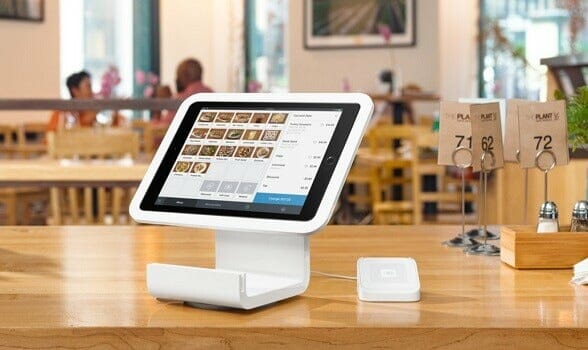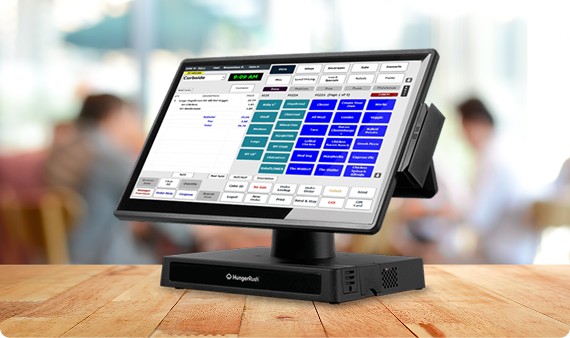Comprehending the Importance of POS Software in Modern Retail Procedures
In today's retail landscape, the duty of POS software has become significantly considerable. These systems have transformed from fundamental cash signs up to multifaceted devices that boost various elements of procedures. They not only improve purchases but additionally offer insights that can form company strategies. Comprehending how these systems influence customer experience and stock monitoring is essential for any store seeking to stay affordable. The implications of these advancements call for further exploration.
The Advancement of POS Software: From Transaction Processing to Comprehensive Solutions

Enhancing Client Experience With Advanced POS Includes

Enhancing Stock Administration With Integrated POS Systems
Integrated POS systems play an important role in improving supply monitoring by automating procedures that commonly called for significant hands-on effort. These systems enable retailers to track supply degrees in genuine time, getting rid of inconsistencies that usually emerge from hands-on supply matters. With functions such as barcode scanning and automatic supply replenishment informs, companies can preserve suitable stock degrees without overstocking or stockouts.Furthermore, integrated POS systems promote exact forecasting by analyzing historic sales data, permitting retailers to make educated getting decisions. This anticipating ability assists companies adjust to altering customer demands and seasonal trends more effectively.Additionally, the centralization of supply data throughout several sales channels enhances visibility, allowing retailers to manage their supply extra successfully. Eventually, the combination of POS systems into supply administration streamlines operations, lowers human mistake, and contributes to increased profitability.
Real-Time Sales Tracking and Reporting for Informed Decision-Making

Precise stock administration lays the foundation for efficient sales tracking and reporting. Real-time sales tracking makes it possible for stores to monitor sales efficiency as it takes place, giving prompt understandings right into consumer buying patterns and trends. This ability permits services to react quickly to changes sought after, enhancing supply levels and reducing overstock or stockouts.Moreover, integrated POS systems help with the generation of comprehensive reports, highlighting key metrics such as sales by category, period, and specific products. Such reporting capabilities encourage merchants to make data-driven choices, identifying effective strategies and areas needing enhancement.
The Function of POS Software in Client Connection Management
POS software plays an important function in enhancing consumer relationship monitoring by allowing merchants to apply tailored advertising approaches. By examining customer data, services can tailor promos and interactions to satisfy specific preferences. In addition, these systems help with the growth of enhanced commitment programs that motivate repeat business and enhance consumer engagement.
Personalized Advertising Techniques
As stores progressively look for to boost consumer loyalty and interaction, customized advertising and marketing techniques have actually arised as a crucial component of efficient client partnership administration. POS software plays an important function in this procedure by accumulating and analyzing customer information, enabling retailers to tailor advertising efforts to specific preferences and shopping behaviors. By leveraging insights from purchase histories, merchants can create targeted promotions and personalized communications that resonate with customers, cultivating a much deeper link. In addition, the assimilation of POS software with consumer partnership administration systems permits seamless tracking of client communications, making certain that marketing strategies remain relevant and prompt (Restaurant POS Software). This data-driven method not only enhances customer fulfillment however also drives sales and encourages repeat company, solidifying the retailer's market placement
Improved Loyalty Programs
Sellers are progressively recognizing the relevance of commitment programs in promoting long-lasting client relationships and boosting general engagement. POS software plays a necessary role in the development and monitoring of these programs, enabling retailers to track consumer purchases, preferences, and actions efficiently. By leveraging information analytics, services can create tailored incentives and rewards that reverberate with individual consumers, thus increasing engagement Full Report in loyalty programs. In addition, POS systems allow smooth combination with mobile apps and electronic platforms, assisting in easy accessibility to benefits and promotions. This not just boosts client complete satisfaction but likewise drives repeat service. Eventually, POS software encourages retailers to grow deeper connections with their clients, changing periodic buyers into faithful customers via targeted and meaningful interaction approaches.
Integrating POS Systems With Shopping Operating Systems for Omnichannel Success
To attain real omnichannel success, seamless combination between point-of-sale (POS) systems and e-commerce systems is necessary. This combination allows retailers to merge their supply management, guaranteeing that product accessibility is properly mirrored across both online and physical shops. Clients profit from a natural buying experience, where they can conveniently switch in between networks without encountering discrepancies.Furthermore, integrated systems help with real-time information sharing, enabling services to assess consumer habits moved here and choices more efficiently. This data-driven method enables retailers to tailor advertising and marketing techniques and enhance stock levels, inevitably boosting client contentment and driving sales.Additionally, the capacity to procedure deals across systems simplifies procedures, minimizing the danger of mistakes and boosting general effectiveness. As merchants increasingly take on omnichannel approaches, the combination of POS systems with ecommerce systems stays an important consider achieving lasting growth and maintaining competitive benefit in the dynamic retail landscape.
Future Fads in POS Innovation and Their Effect On Retail Operations
As retail procedures evolve, future fads in POS innovation are readied to reshape the landscape significantly. The rise of cloud-based remedies, advancements in mobile POS systems, and the benefits of AI combination are among the essential growths expected to boost efficiency and client experience. These advancements guarantee to simplify processes and promote a more vibrant retail setting.
Cloud-Based Solutions Rise
With the boosting dependence on technology, cloud-based POS services are transforming retail procedures by supplying enhanced versatility and scalability. These systems make it possible for retailers to gain access to real-time information from anywhere, facilitating better decision-making and customer care. By leveraging cloud infrastructure, services can decrease upfront prices connected with software and hardware installations while ensuring smooth updates and maintenance. Additionally, cloud-based services support multi-location monitoring, permitting retailers to synchronize inventory and sales across numerous electrical outlets easily. This adaptability is crucial in today's hectic market, where customer choices change swiftly. As even more stores take on these solutions, they can anticipate better functional effectiveness and a much more receptive approach to market needs, inevitably improving client fulfillment and loyalty.
Mobile POS Innovations
The evolution of retail technology remains to form operations, especially with the surge of mobile POS advancements. These systems allow sellers to process purchases anywhere within the shop, boosting client engagement and streamlining check out processes. Mobile POS options enhance stock monitoring by permitting immediate accessibility to supply levels, aiding personnel assist consumers more successfully. In enhancement, they help with personalized buying experiences through integrated consumer data and commitment programs. As smart phones become progressively advanced, sellers are taking on features such as contactless settlements and digital receipts, furthermore maximizing the purchasing trip. The shift towards mobile POS not just improves functional efficiency yet also lines up with the expanding consumer choice for benefit, making certain that sellers continue to be competitive in a rapidly progressing market.
AI Assimilation Benefits
AI combination stands for a transformative jump in POS modern technology, using stores a myriad of advantages that enhance operational effectiveness and customer experience. By leveraging read more artificial intelligence algorithms, merchants can assess acquiring patterns and maximize supply management, decreasing waste and stockouts. Furthermore, AI-powered analytics give personalized marketing referrals, enabling targeted promos that enhance client engagement and loyalty. Chatbots and digital assistants streamline customer solution, permitting for quicker resolution of questions and boosting the overall shopping experience. Predictive analytics can likewise forecast demand trends, making it possible for smarter staffing and source allowance. Inevitably, the assimilation of AI in POS systems encourages stores to make data-driven choices, promoting a competitive side in an ever-evolving retail landscape.
Often Asked Questions
What Are the Costs Related To Carrying Out POS Software?
The expenses related to applying POS software can consist of software licensing costs, hardware expenditures, setup charges, training prices, and recurring maintenance. Each factor adds to the overall financial investment required for an effective implementation.
Just How Can Small Retailers Advantage From POS Systems?
Tiny retailers can gain from POS systems through improved purchase performance, streamlined inventory monitoring, and improved client understandings. These systems make it possible for far better decision-making, ultimately bring about enhanced sales and client satisfaction in open markets.
What Hardware Is Needed for a POS System?
A common POS system calls for essential hardware components, including a touchscreen monitor, cash money cabinet, barcode scanner, invoice printer, and payment terminal. These components collaborate to promote effective deal processing and stock administration for sellers.

Can POS Software Be Personalized for Particular Retail Demands?
POS software can undoubtedly be customized to fulfill particular retail needs. Restaurant POS Software. This versatility permits services to customize features, interfaces, and coverage tools, improving functional efficiency and offering a more tailored experience for both staff and clients
Just How Protected Is Consumer Information in POS Systems?
The security of client information in POS systems differs widely. Lots of systems execute security, secure gain access to controls, and routine updates, yet vulnerabilities can still exist, requiring continuous alertness and proactive steps from merchants to shield delicate info.
Comments on “Tracking performance with data: How Restaurant POS Software tools drive better decisions”